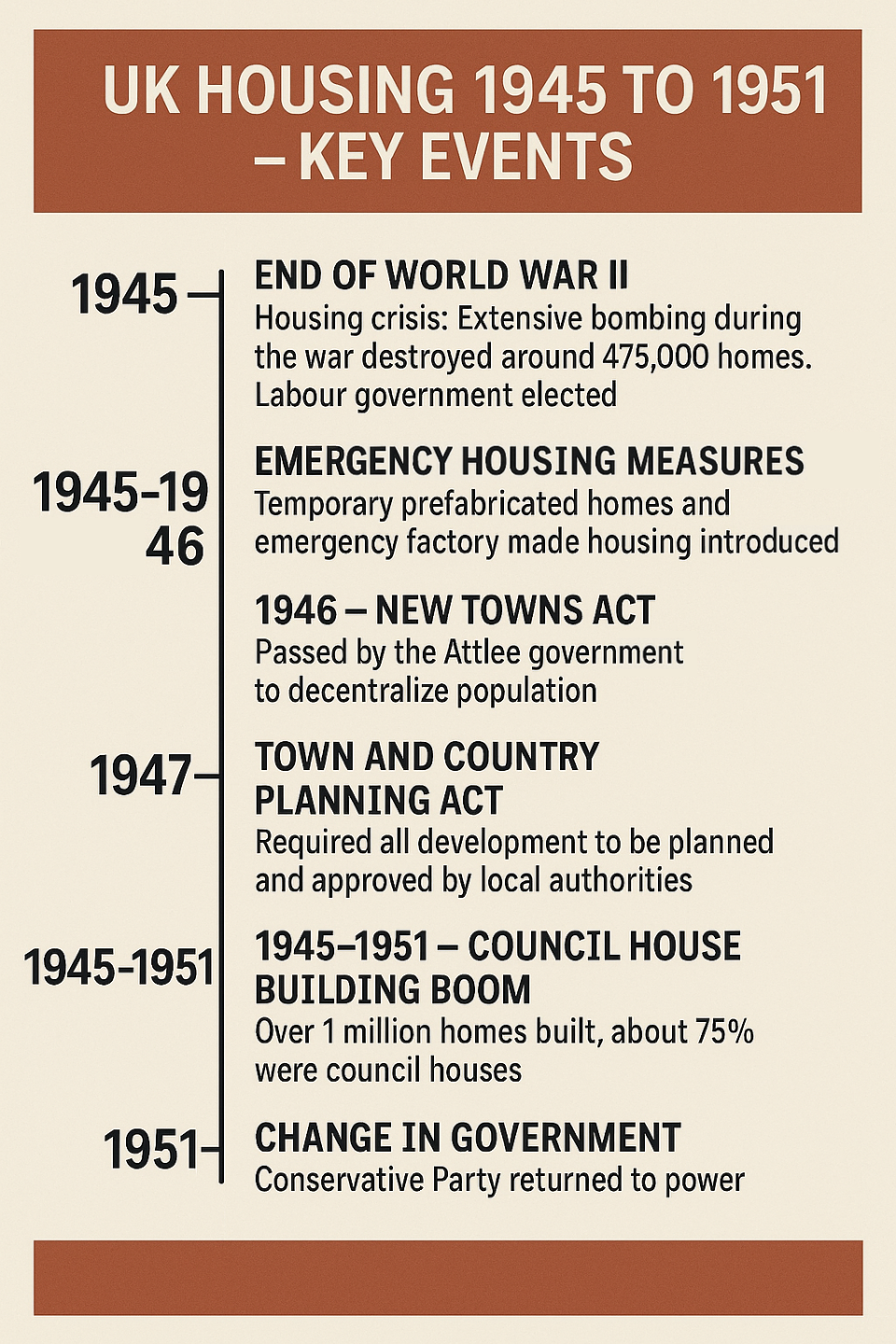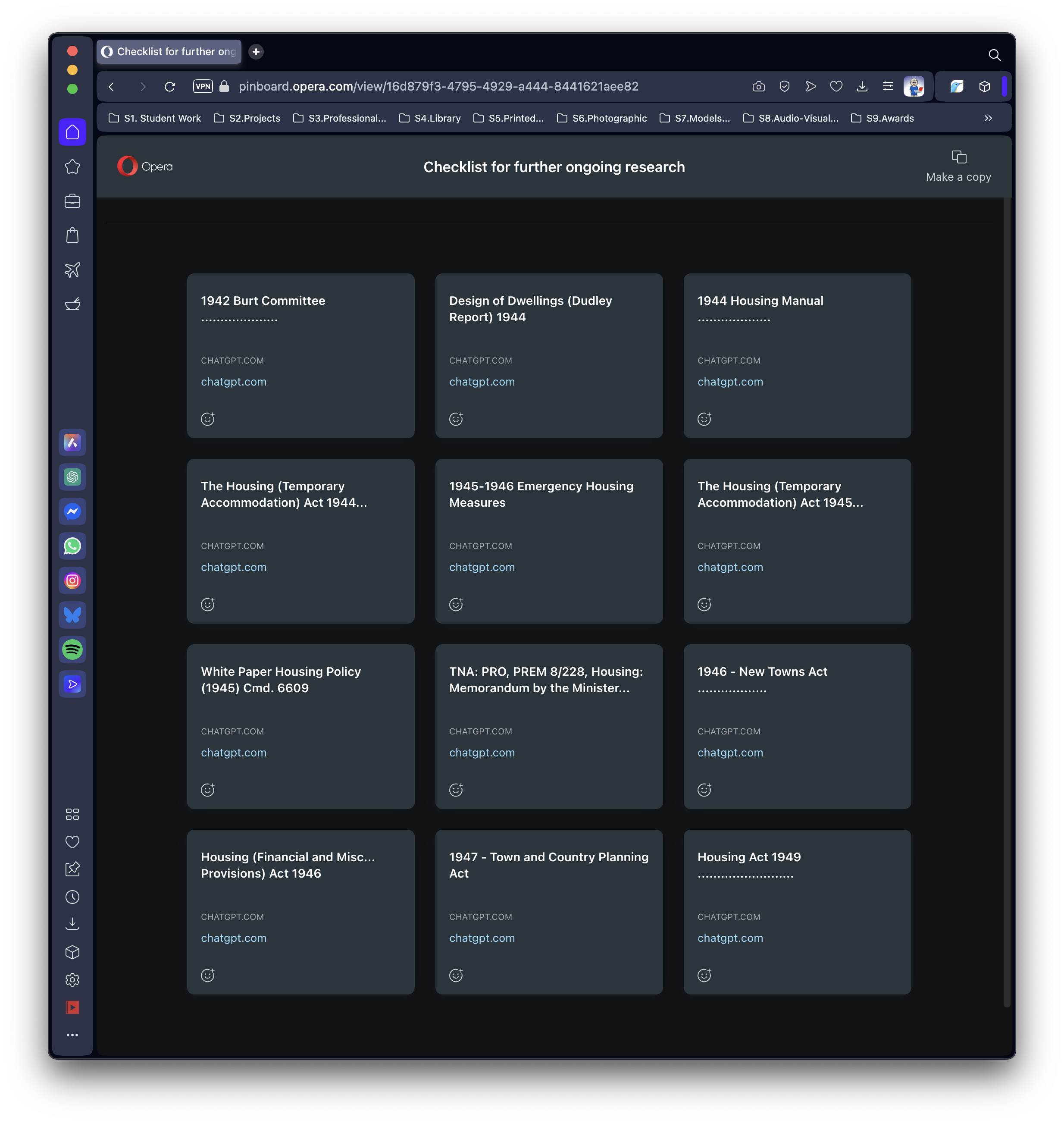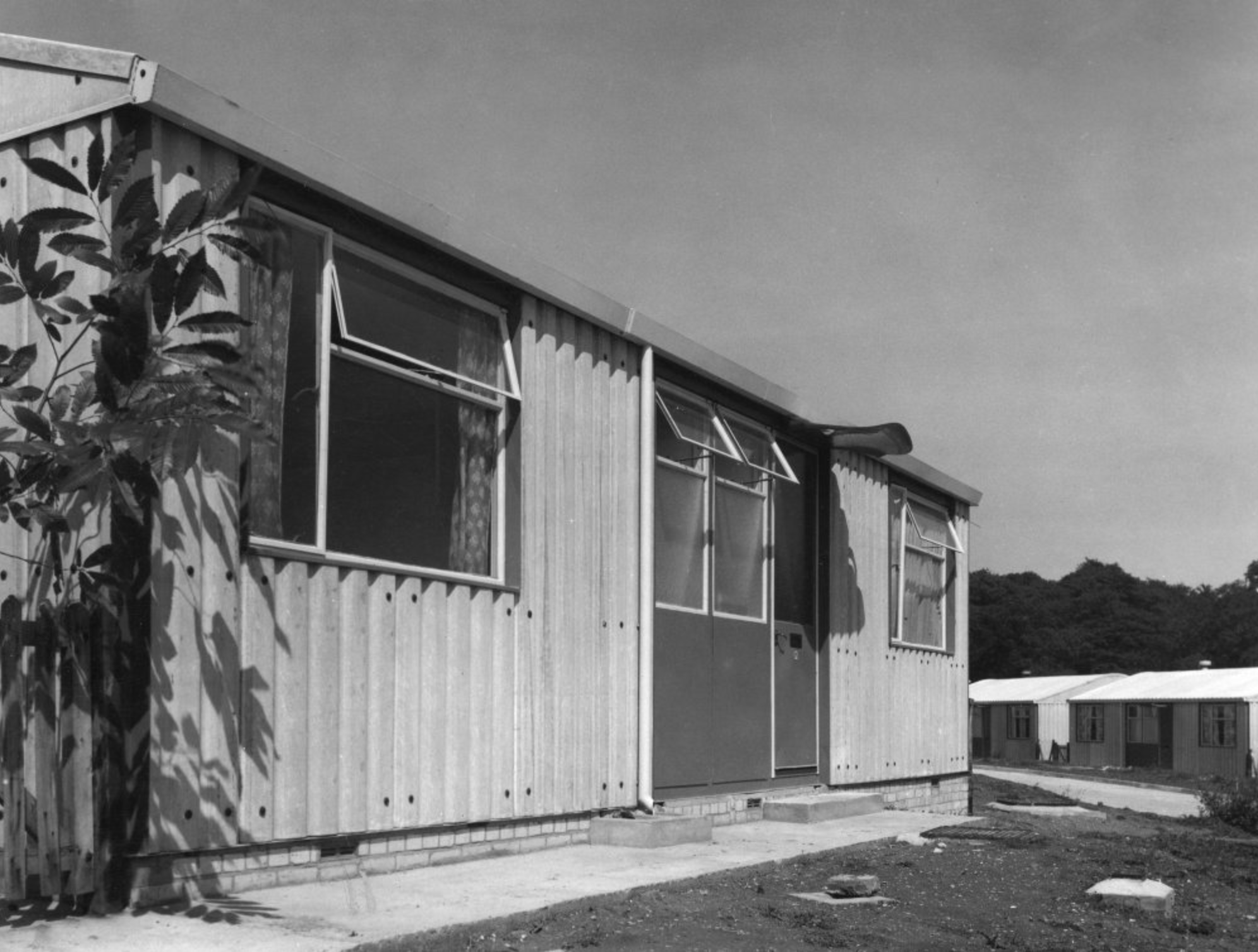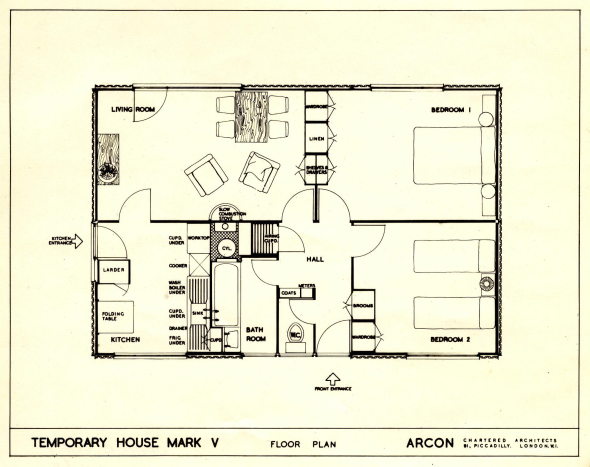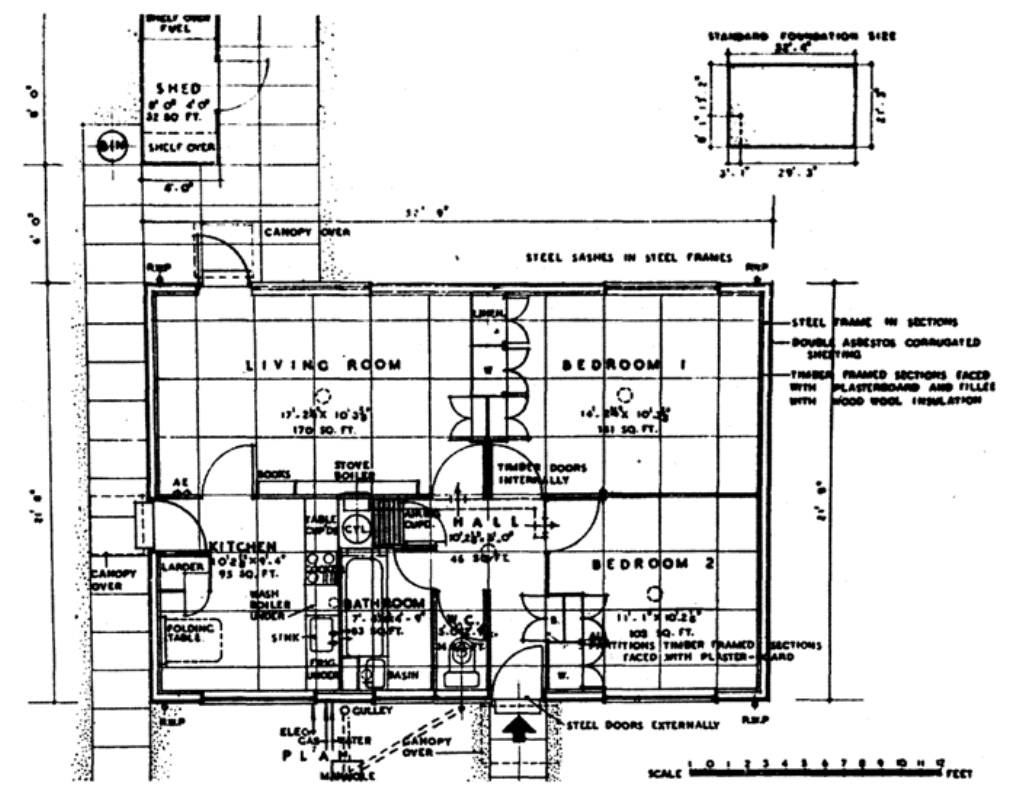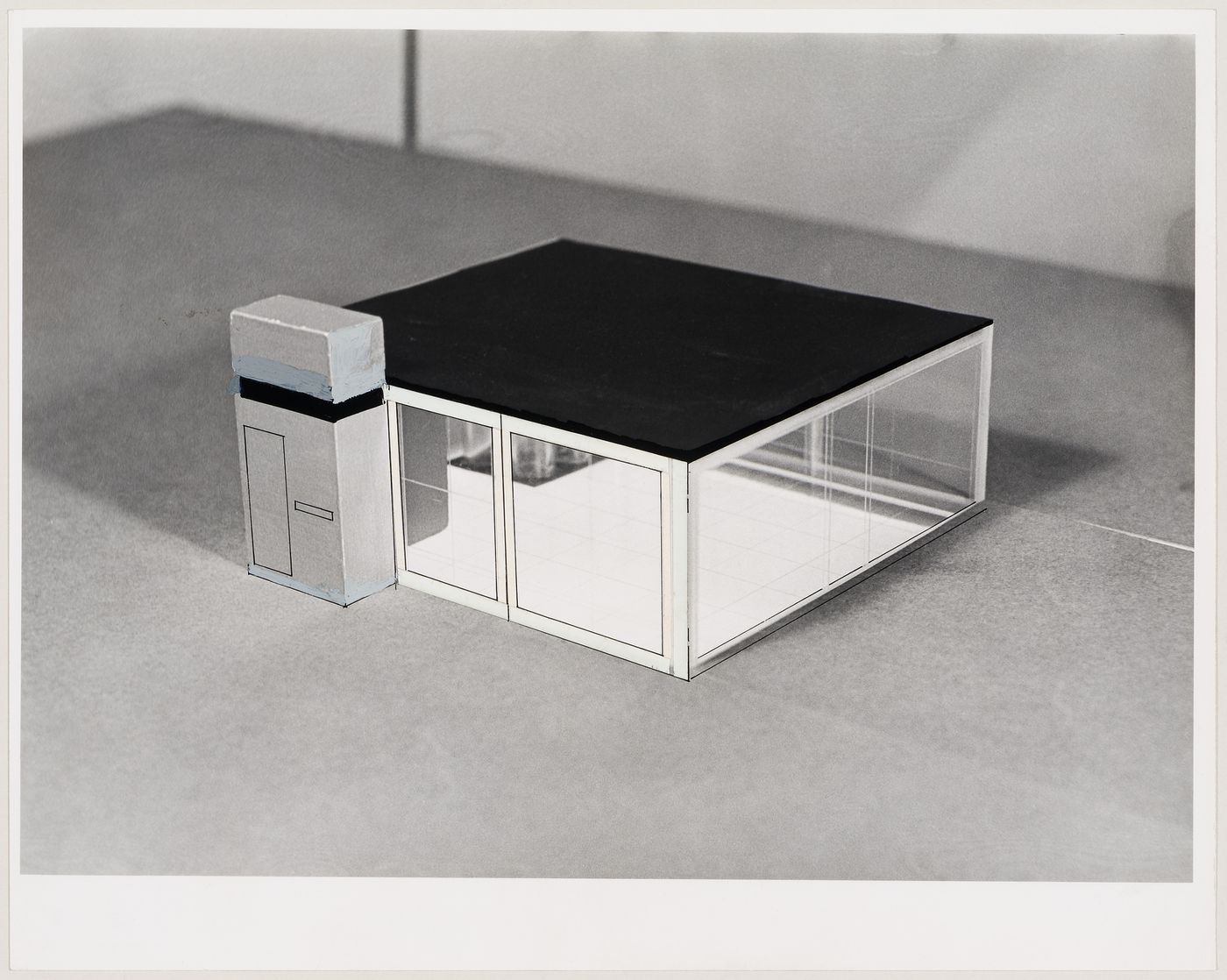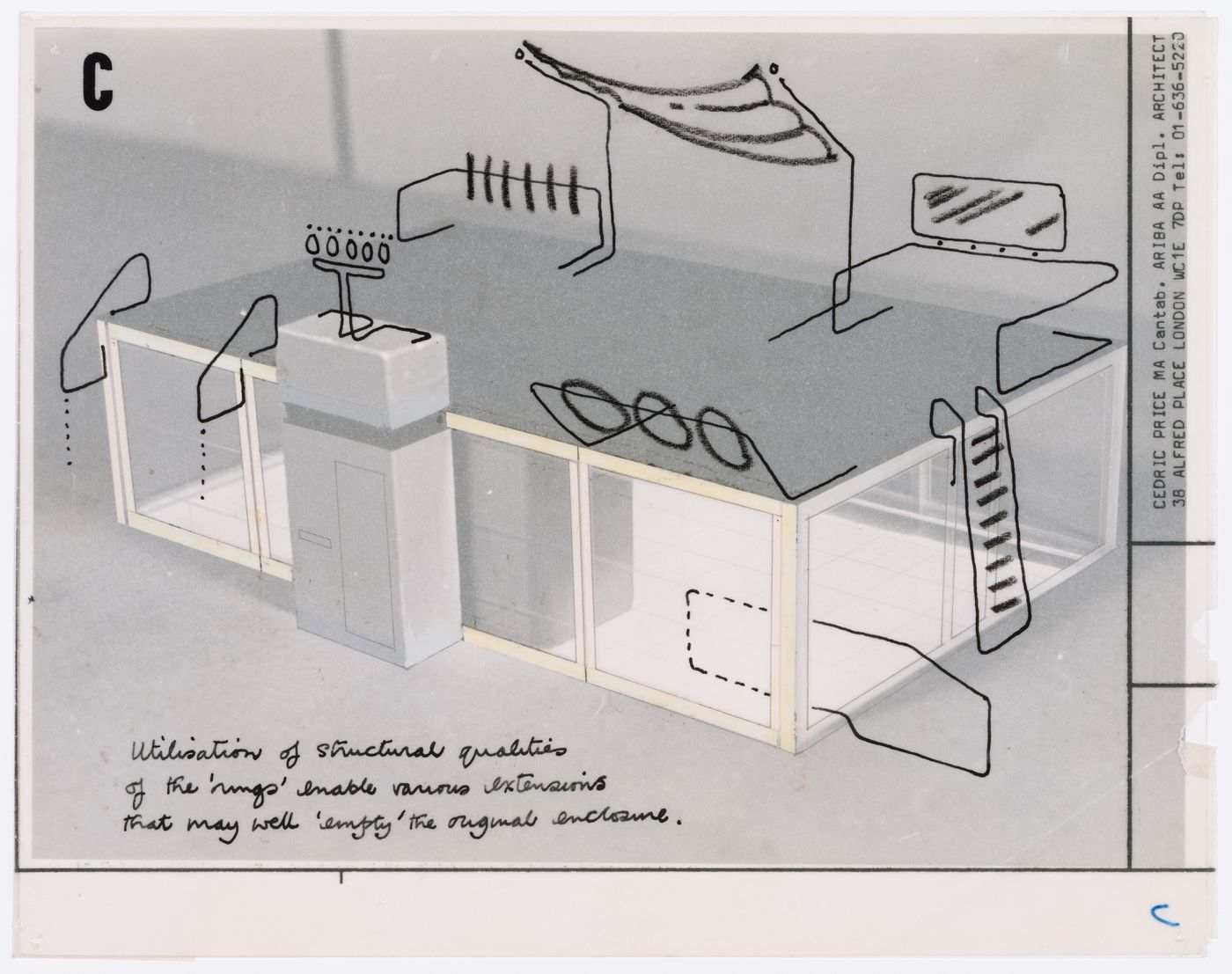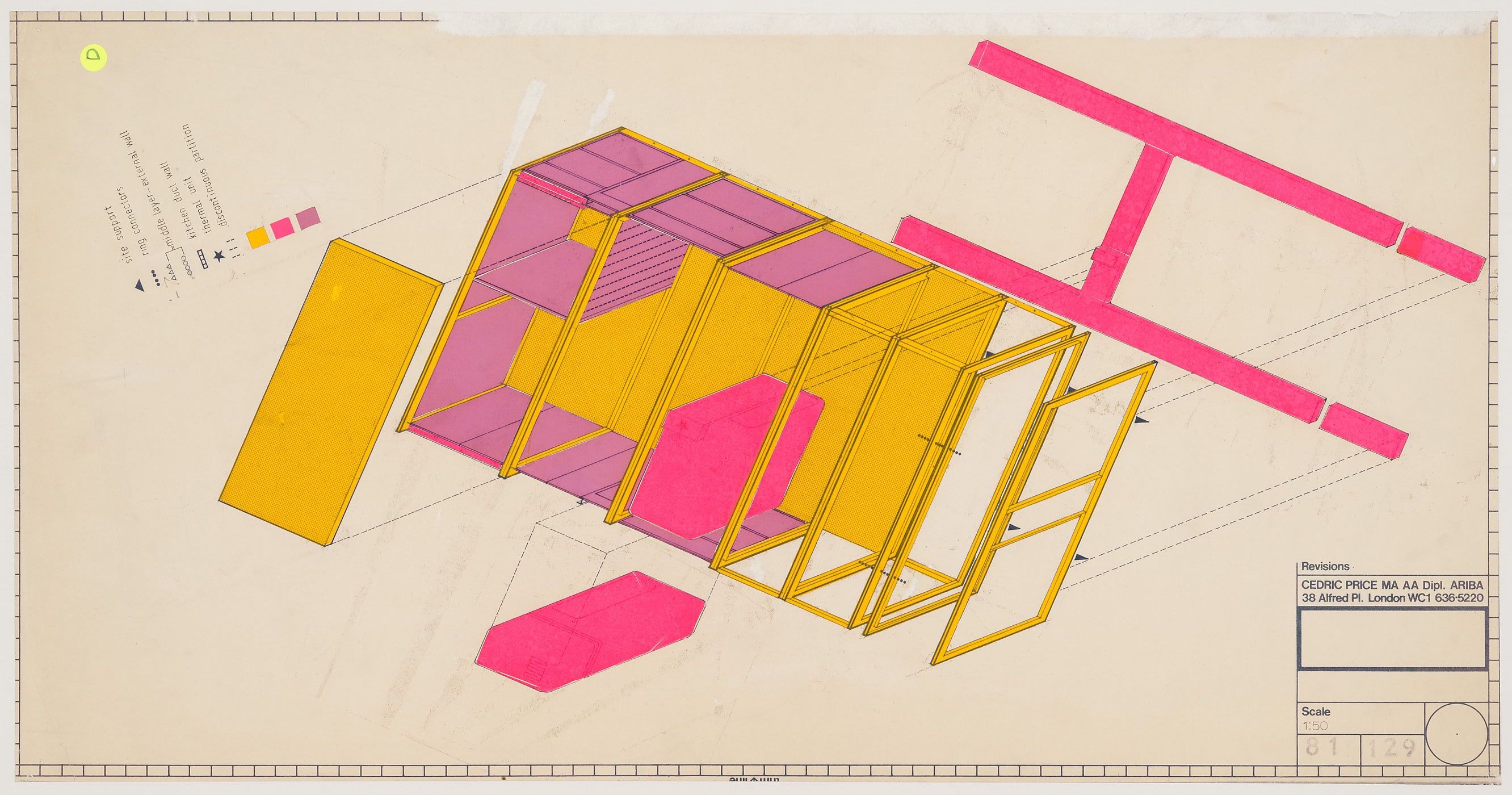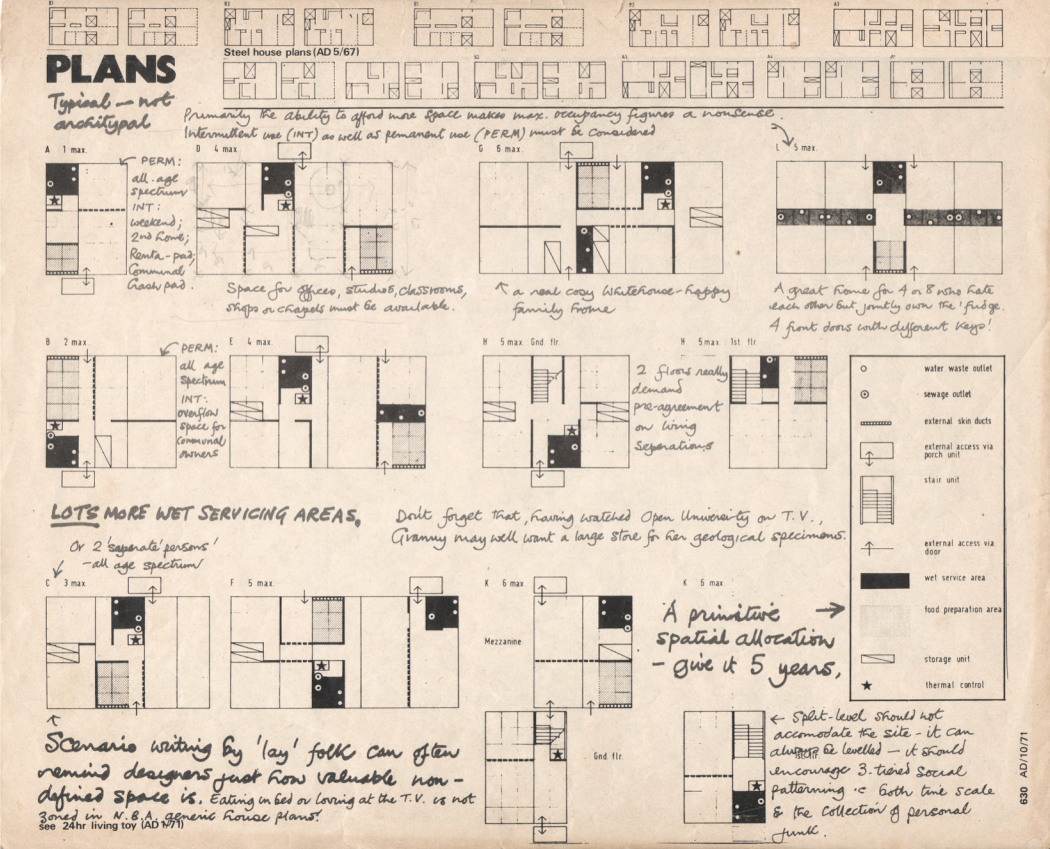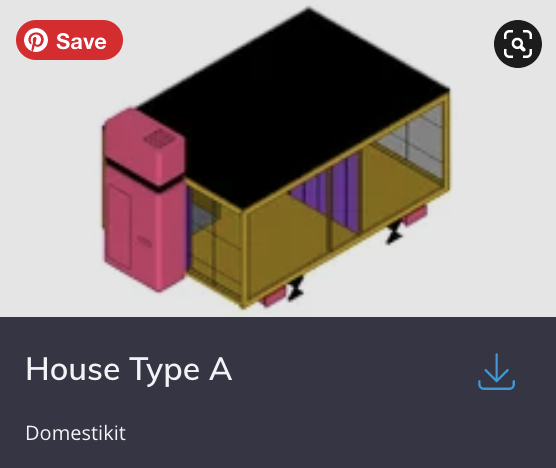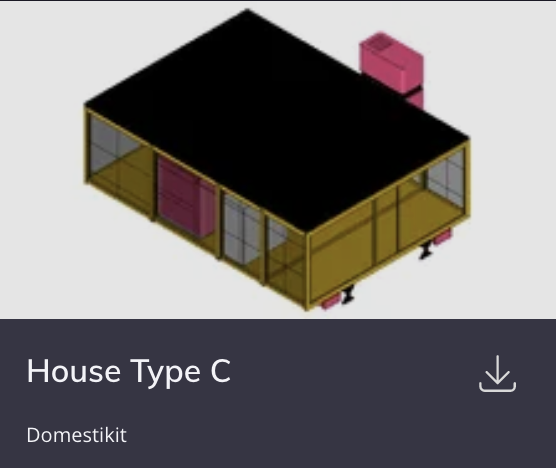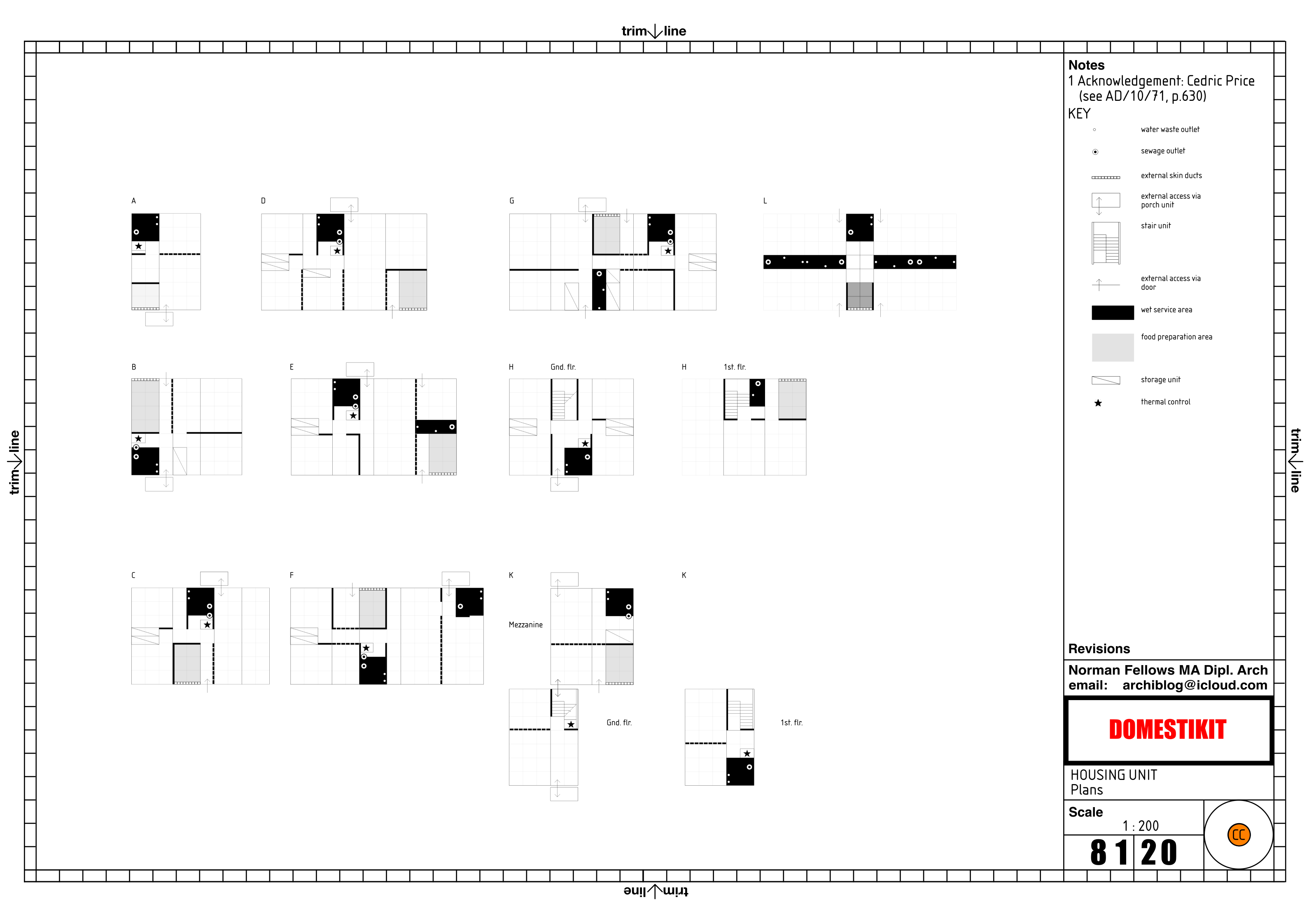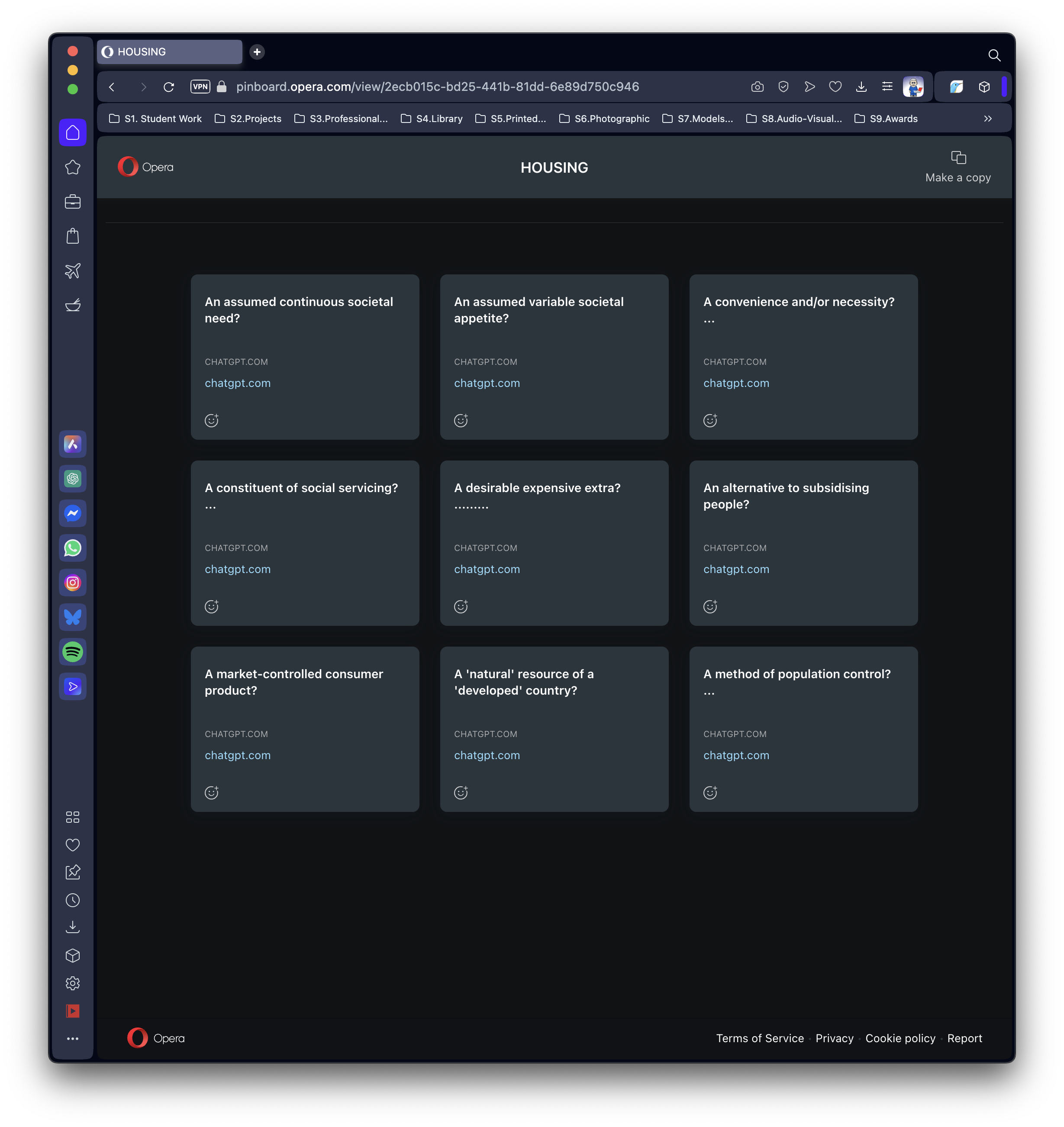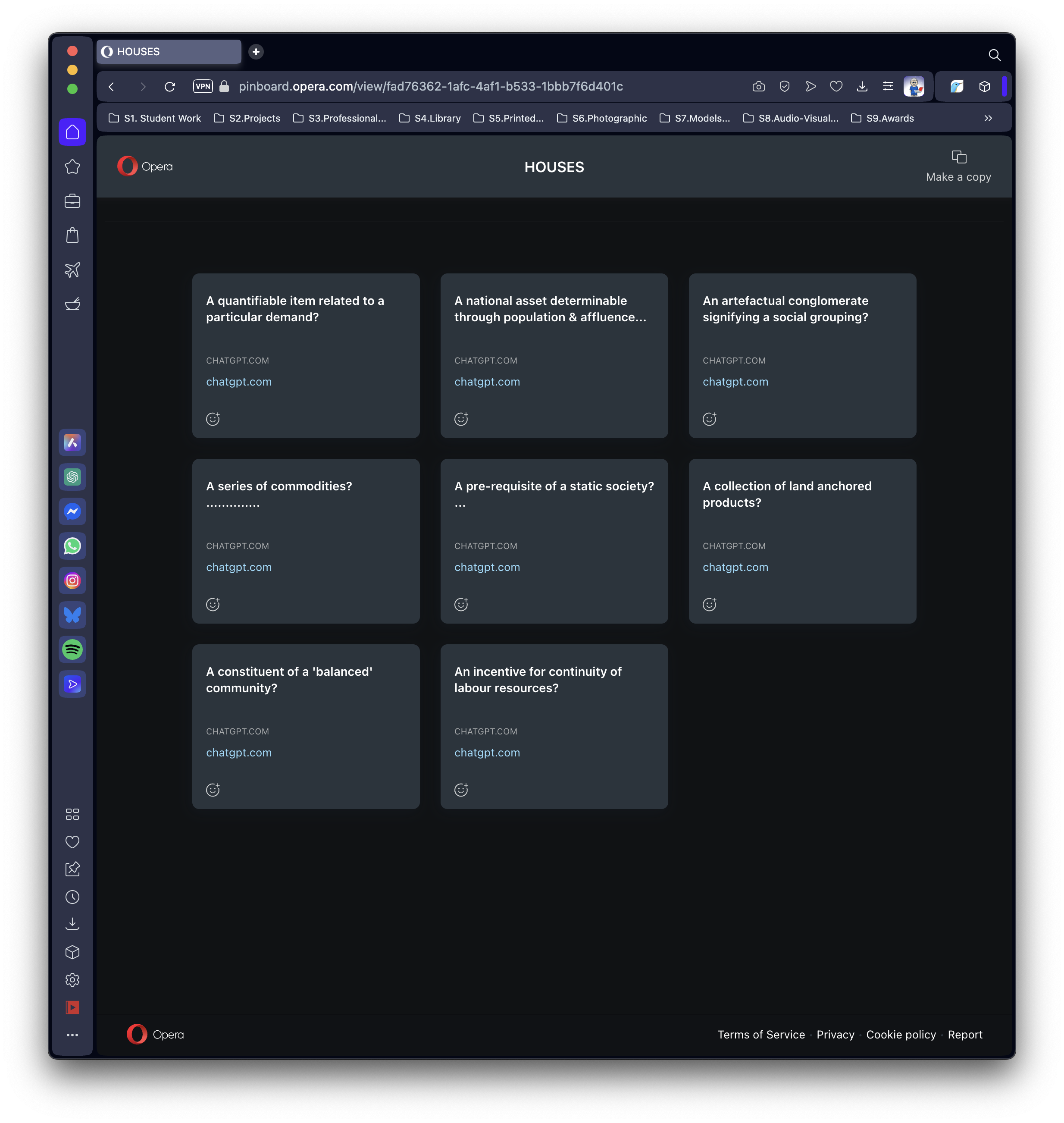HOUSING IN THE UK: Further ongoing research
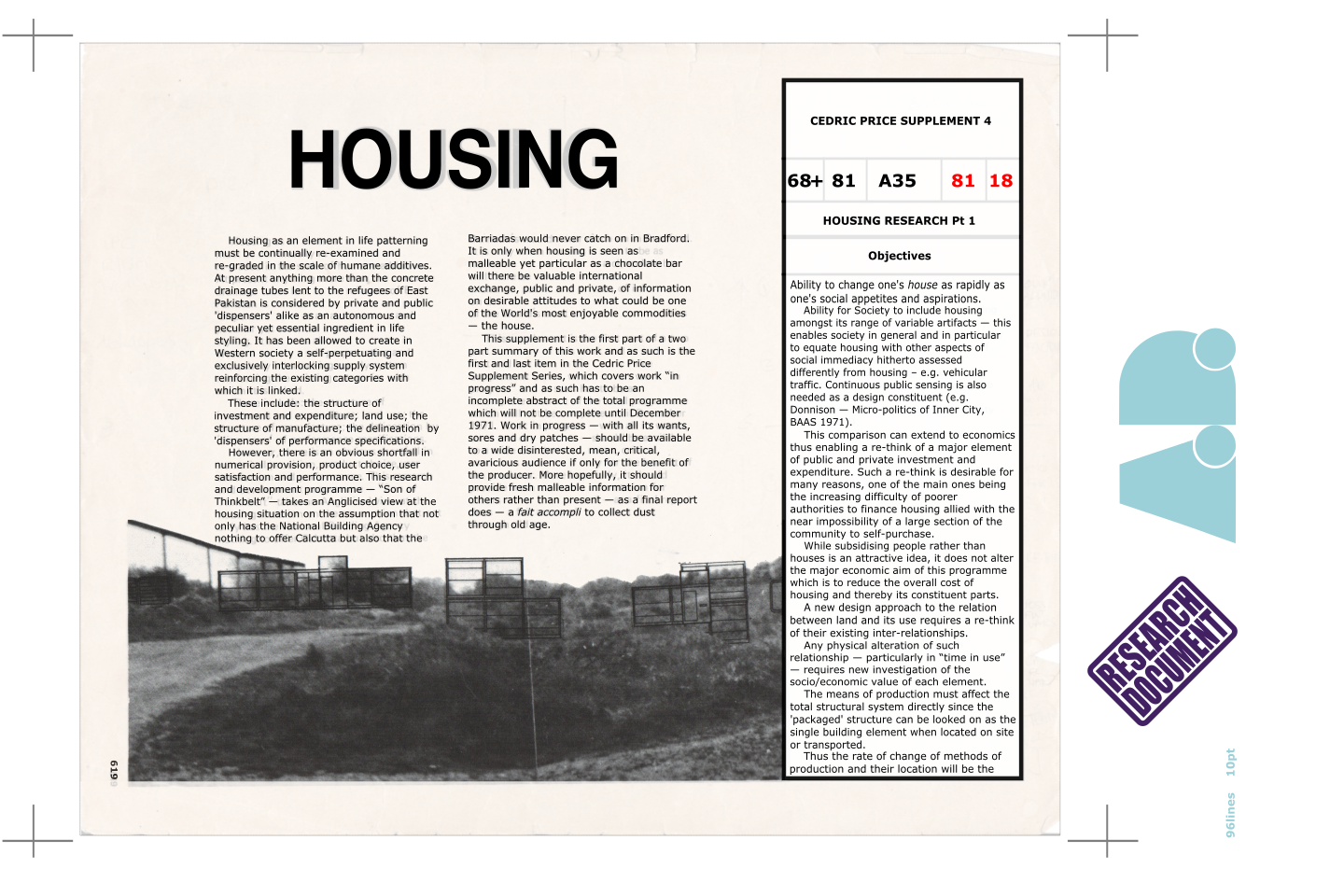
|
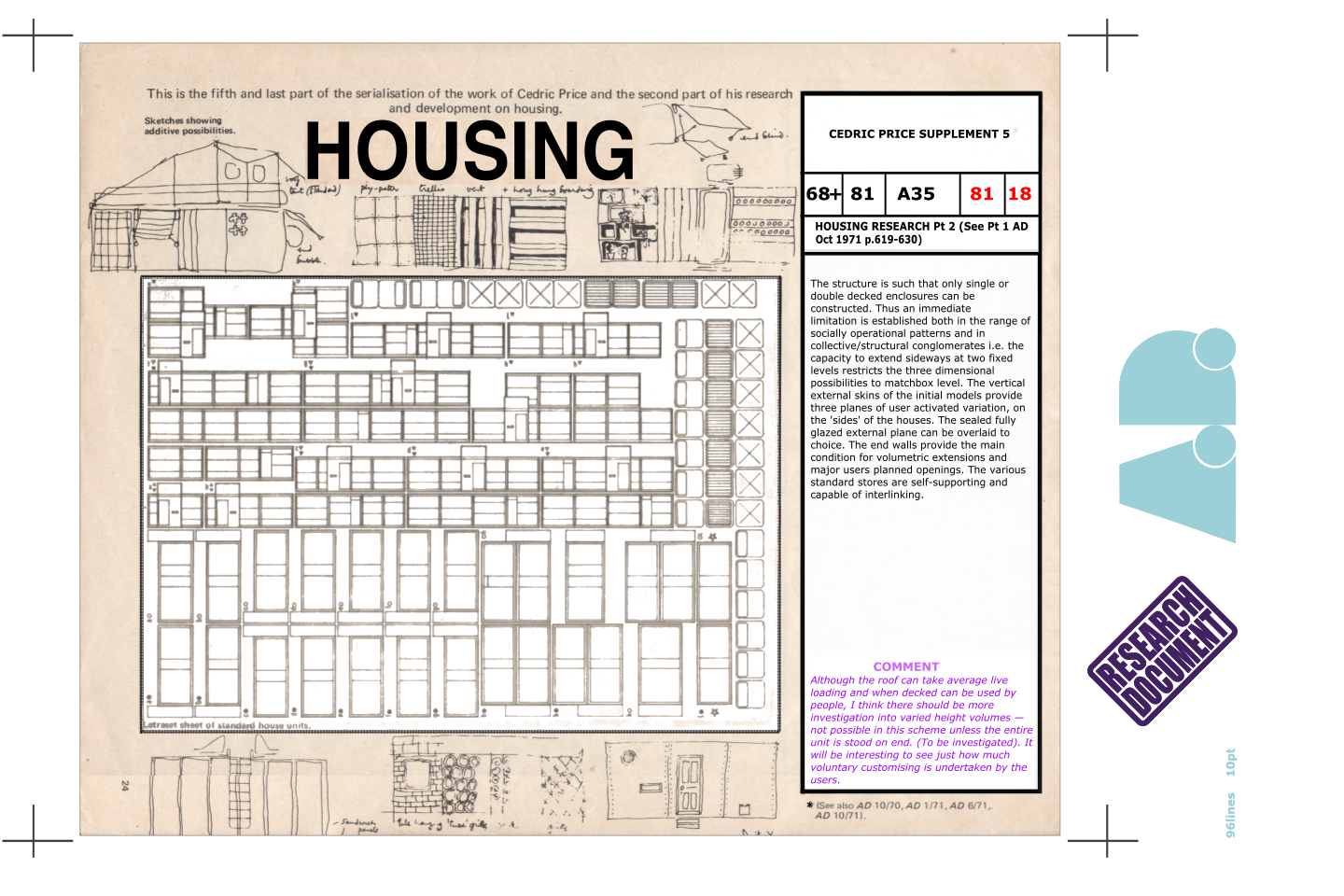
|
• Link to mock-up of abstract Pt 1 (left) Link to mock-up of abstract Pt 2. Source: Norman Fellows
|
• Timeline graphic. Source: ChatGPT, edited by Norman Fellows |
[edit] PREFACEIn 1995, Brenda Vale wrote:—
Given the infinite regress argument against so-called “permanent" housing built in the UK between 1918 and 1968 it seems rational to take the THP as a starting point for further ongoing research. [1] |
[edit] INTRODUCTION
|
In her introduction, Brenda Vale wrote:—
In 'Housing in the UK', Norman Fellows identified an infinite regress in housing in the UK from Tudor Walters in 1918 to Parker Morris in 1968. However, this follow-up article assumes:—
Thus the purpose of this follow-up article is:—
|
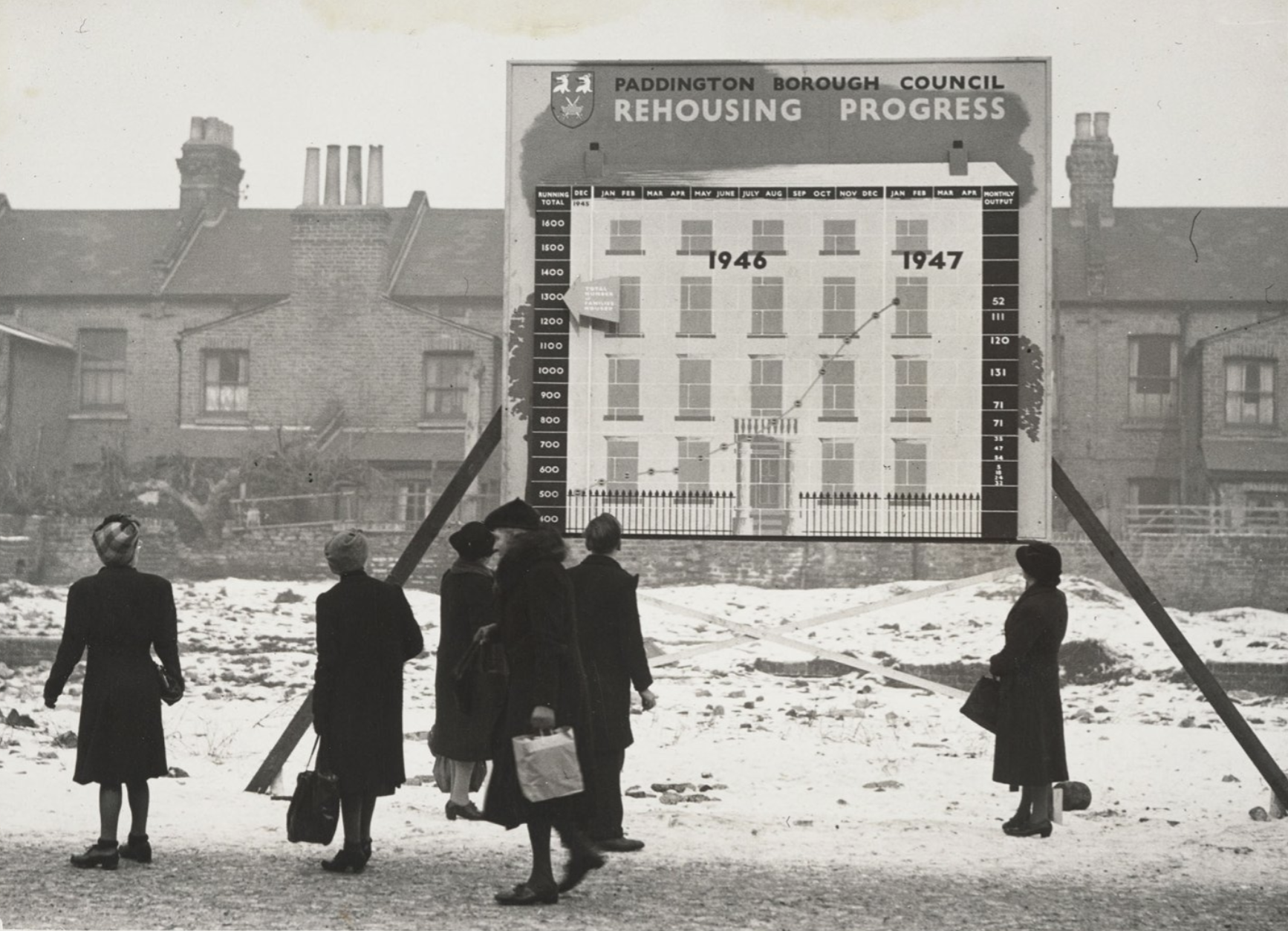 • Progress graph, Paddington. Source: Hutton Archive/Getty Images • Progress graph, Paddington. Source: Hutton Archive/Getty Images
|
[edit] IDENTIFYING A PROGRESSION
|
John Temple has argued:—
However, the so-called "permanent dwellings" he refers to were the product of a long-life dwelling philosophy and therefore part of the ongoing regress. Thus the argument from anticipatory design proposes:— The following items are listed here in relation to the THP:—
See checklist (right) for links to AI generated research. |
|
[edit] • TEMPORARY HOUSING PROGRAMME
For further information see 'PERIOD ONE: 1944-1949', DOMESTIKIT: UK |
[edit] • SHORT LIFE HOUSING STUDY—U.K.According to Cedric Price:—
and explained:—
• Selected images from 'Housing Research'. Source: Cedric Price Cedric Price also raised the following key points:—
and explained:—
For further information see '1967 SHORT LIFE HOUSING STUDY—U.K.' in 'PERIOD TWO: 1965-1971', DOMESTIKIT: UK |
[edit] • DOMESTIKITWork on Domestikit began in January 1972 with the publication of the second part of the summary by Cedric Price, namely:—
However, the title was not coined by Norman Fellows until October 1972 after a reading of a soliloquy entitled 'I Figure' published in 'Ideas and Integrities' in 1963 in which Buckminster Fuller discussed the idea of a "World-Wide Dwelling Service" (p.109). Domestikit itself was not actually published by Norman Fellows until 10 January 1978 at a meeting with Cedric Price at 38 Alfred Place.
• Selected digitized items from the Domestikit Catalogue — Source: Domestikit on 3D Warehouse For further information see 'PERIOD THREE: 1972-1977', DOMESTIKIT: UK |
[edit] CONCLUSION
This article concludes:—
- ... that the prefabs built in the UK from 1944 to 1949 as part of the THP were a precedent for Cedric Price's short life housing study UK.
- ... that Cedric Price's short life housing study UK was a precedent for Domestikit.
However, there is an argument against progressive housing as exemplified by Cedric Price's short life housing and hence Domestikit.
Therefore this article also concludes:—
- ... that further ongoing research is required.
[edit] Notes
[1] A working hypothesis was constructed by Norman Fellows In 'Housing in the UK'. It is provisionally accepted in this article as a basis for further ongoing research.
[edit] APPENDIX - AI GENERATED QUESTIONNAIRE
Note: AI can make mistakes - these questions should be checked before use.
Cedric Price has suggested:—
- ... that, in relation to housing, there is an indeterminate situation rather than a soluble problem; and
- ... that housing, houses, house and home may be unhooked.
[edit] • HOUSING |
[edit] • HOUSES |
• Screenshots of initial questions from 'Expediency' by Cedric Price. Source: Pinboards, Norman Fellows
- "The second range of questions to determine such things as the (continuous or intermittent) rate of production, range of products, frequency of alteration in demand and the nature of such alteration must be related to the initial questions and not 'packaged' for the convenience of the programmers."
- (Cedric Price, ib.)
[edit] • HOUSE |
[edit] • HOME |
• Screenshots of second range of questions from 'Expediency' by Cedric Price. Source: Pinboards, Norman Fellows
NOTE:—Glimpses of some of the implications of such questions can be obtained by clicking on the 'Learn More' links.
Further, Cedric Price asked:—
- "Why should anyone assume that such a display of intellectually edible concepts will ever reduce, when challenged with the hunger for somewhere to LIVE?"
- (ib.)
[edit] Bibliography
John Temple (2022) 'A Radical and Progressive Legacy: Labour’s Housing Record, 1945 to 1951', Labour History Review, vol. 87, no. 1, Liverpool University Press
John Temple (2023) 'Slaying Squalor: An assessment of Labour's housing record, 1945 to 1951', ResearchGate
Ministry of Public Building and Works (1944) 'Demonstration Houses: A Short Account of the Demonstration Houses & Flats erected at Northnolt', HMSO
Brenda Vale (1995) 'Prefabs: A History of the UK Temporary Housing Programme', drive.google.com
[edit] Related articles on Designing Buildings
Featured articles and news
A case study and a warning to would-be developers
Creating four dwellings for people to come home to... after half a century of doing this job, why, oh why, is it so difficult?
Reform of the fire engineering profession
Fire Engineers Advisory Panel: Authoritative Statement, reactions and next steps.
Restoration and renewal of the Palace of Westminster
A complex project of cultural significance from full decant to EMI, opportunities and a potential a way forward.
Apprenticeships and the responsibility we share
Perspectives from the CIOB President as National Apprentice Week comes to a close.
The first line of defence against rain, wind and snow.
Building Safety recap January, 2026
What we missed at the end of last year, and at the start of this...
National Apprenticeship Week 2026, 9-15 Feb
Shining a light on the positive impacts for businesses, their apprentices and the wider economy alike.
Applications and benefits of acoustic flooring
From commercial to retail.
From solid to sprung and ribbed to raised.
Strengthening industry collaboration in Hong Kong
Hong Kong Institute of Construction and The Chartered Institute of Building sign Memorandum of Understanding.
A detailed description from the experts at Cornish Lime.
IHBC planning for growth with corporate plan development
Grow with the Institute by volunteering and CP25 consultation.
Connecting ambition and action for designers and specifiers.
Electrical skills gap deepens as apprenticeship starts fall despite surging demand says ECA.
Built environment bodies deepen joint action on EDI
B.E.Inclusive initiative agree next phase of joint equity, diversity and inclusion (EDI) action plan.
Recognising culture as key to sustainable economic growth
Creative UK Provocation paper: Culture as Growth Infrastructure.
Futurebuild and UK Construction Week London Unite
Creating the UK’s Built Environment Super Event and over 25 other key partnerships.
Welsh and Scottish 2026 elections
Manifestos for the built environment for upcoming same May day elections.
Advancing BIM education with a competency framework
“We don’t need people who can just draw in 3D. We need people who can think in data.”






